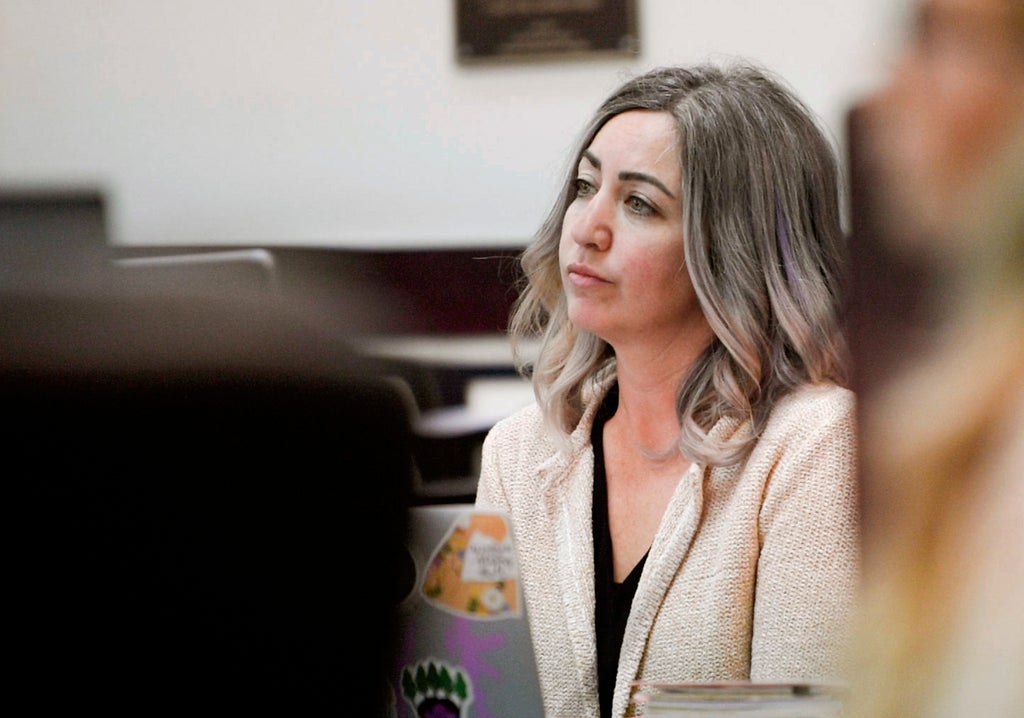
Former nurse RaDonda Vaught broke down in tears at the start of her trial on reckless homicide over the death of an elderly patient given the wrong medication.
The landmark trial could change the landscape of nursing in the US, as a criminal conviction could see Ms Vaught face up to 12 years in prison and set a precedent of liability and prosecution of fatal medical errors.
She also faces a charge of impaired adult abuse over the death of 75-year-old Charlene Murphey at the prestigious Vanderbilt University Medical Center in Tennessee in 2017.
Ms Vaught, 38, put her head down and cried multiple times as opening statements outlined how Ms Murphey was prescribed Versed, a sedative, but was instead injected with vecuronium, according to the Nashville Tennessean.
The strong paralytic left Ms Murphey unable to breathe, and she was later pronounced dead after being removed from life support on 27 December 2017.
She had been admitted two days earlier with complaints of headaches and loss of vision. When a PET scan was ordered on 26 December, Ms Murphey asked for medication for the claustrophobic anxiety she anticipated.
The drug Versed could not be found in the automated drug dispensing cabinet because it was listed under the generic brand midazolam. Court records show Ms Vaught used an override mechanism to type in "VE", which led to the dispensing of vecuronium instead.
Neither the prosecution nor defence dispute that Ms Murphey was given the wrong medication. While defence attorney Peter Strianse said the error was a systemic problem with Vanderbilt, prosecutor Debbie Housel said Ms Vaught showed reckless disregard for safeguards protecting patients.
The first witness, Chandra Murphey, testified that her mother-in-law was feeling better when doctors ordered the PET scan to determine the cause of bleeding on her brain.
"They basically took her down fine and brought her back dead,” she said.
The death was first ruled as being from natural causes before being determined to be from accidental acute vecuronium intoxication, the court heard.
Ms Vaught was not indicted until early 2019 after state and federal health officials were tipped off to an unreported medication error.
During a Tennessee Board of Nursing hearing last year, Ms Vaught admitted to being complacent and distracted, but that she was not the only one to blame.
"I know that the reason that this patient is no longer here is because of me. I get to have Christmas with my family every year and it hurts they don’t. There won’t ever be a day that goes by that I don’t think about what I did and how it’s affected them," she told the nursing board.
The trial continues.
The Associated Press contributed to this report.







